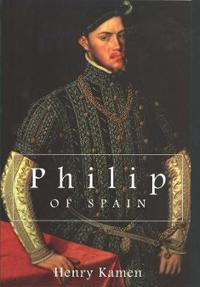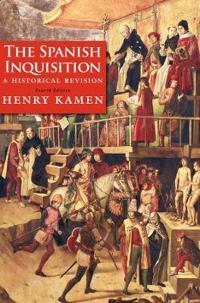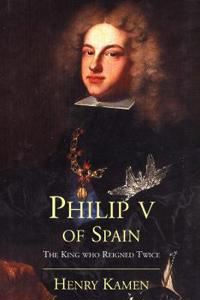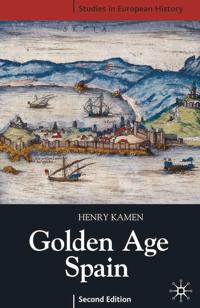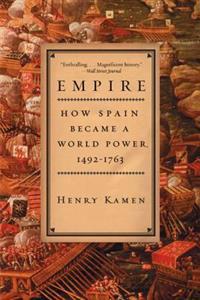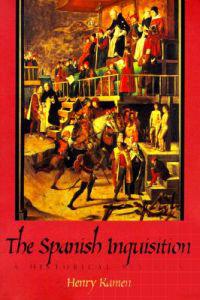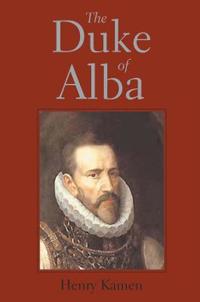Philip of Spain (Pocket)
avHenry Kamen
ISBN: 9780300078008 - UTGIVEN: 199903Philip II of Spain -- ruler of the most extensive empire the world had ever known -- has been viewed in a harsh and negative light since his death in 1598. Identified with repression, bigotry, and fanaticism by his enemies, he has been judged more by the political events of his reign than by his per[...]
The Spanish Inquisition (Häftad)
avHenry Kamen
ISBN: 9780300180510 - UTGIVEN: 2014-07In this completely updated edition of Henry Kamen's classic survey of the Spanish Inquisition, he incorporates the latest research in multiple languages to offer a new - and thought-provoking - view of this fascinating period. Kamen sets the notorious Christian tribunal into the broader context of I[...]
Philip V of Spain (Pocket)
avHenry Kamen
ISBN: 9780300180541 - UTGIVEN: 2001-06Philip V, who reluctantly assumed the Spanish throne in 1700, was the first of the Bourbon dynasty which continues to rule Spain today. His 46-year reign, briefly curtailed in 1724 when he abdicated in favour of his short-lived son, Louis I, was one of the most important in the country's history. Th[...]
Spain, 1469-1714 (Pocket)
avHenry Kamen
ISBN: 9780582784642 - UTGIVEN: 2005-07-07This volume shows how Spain achieved world power in the 16th, 17th and early 18th centuries by examining crucial political events and foreign policy during the reigns of each of the nation's rulers, from Ferdinand and Isabella at the end of the15th century to Philip V at the beginning of the 18th ce[...]
Golden Age Spain (Häftad)
avHenry Kamen
ISBN: 9781403933379 - UTGIVEN: 200410Was the Golden Age of Spain in the sixteenth century an illusion? By introducing and examining some of the key issues and themes involved, Henry Kamen offers a balanced discussion of this question. The second edition of this book has been thoroughly revised and rewritten in the light of recent resea[...]
Empire: How Spain Became a World Power, 1492-1763 (Häftad)
avHenry Arthur Francis Kamen
ISBN: 9780060932640 - UTGIVEN: 200402From the late-fifteenth to the mid-eighteenth century, Spain was the most extensive empire the world had seen, stretching from Naples and the Netherlands to the Philippines. This provocative work of history attributes Spain's rise to power to the collaboration of international business interests, in[...]
The Spanish Inquisition: A Historical Revision (Häftad)
avHenry Arthur Francis Kamen
ISBN: 9780300078800 - UTGIVEN: 199907A renowned historian here presents a new view of the notorious Spanish Inquisition, arguing that there was less terror, bigotry, and persecution associated with it than has been previously believed. Based on thirty years of research, the book will revolutionize further study in the field.[...]
The Duke of Alba (Inbunden)
avHenry Arthur Francis Kamen
ISBN: 9780300102833 - UTGIVEN: 200406Ferdinand Alvarez de Toledo, the third duke of Alba (1507-1582), is known to history as "the butcher of Flanders". The general who carried out Philip II's repressive policies in the Netherlands, he was responsible for the massacre of thousands of men, women and children, considering it better to lay[...]

